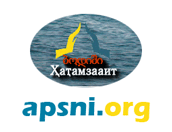South Caucasus Network of Human Rights Defenders
Reports on Human Rights Practices Azerbaijan
[12.02.2010]
Azerbaijan is a republic with a population of approximately nine million and a presidential form of government. Legislative authority is vested in the Milli Majlis (National Assembly). In practice the president dominated the executive, legislative, and judicial branches of government. Ilham Aliyev, the son of former president Heydar Aliyev, was reelected president for a second term in October 2008 in a process that did not fully meet international standards for a democratic election. Election shortcomings included serious restrictions on political participation and the media, pressure and restrictions on observers, and flawed vote counting and tabulation processes. The two-term limit for the presidency was removed in a March referendum, the conduct of which was seriously flawed. Although there were more than 50 political parties, the ruling Yeni Azerbaijan Party continued to dominate the political system. Ethnic Armenian separatists, with Armenia's support, continued to control most of the Nagorno-Karabakh region of the country and seven surrounding Azerbaijani territories. The government did not exercise any control over developments in those territories. Civilian authorities generally maintained effective control of the security forces. Members of the security forces at national and local levels committed numerous human rights abuses.
The right of citizens to peacefully change their government was restricted in the October 2008 presidential election, March referendum, and December municipal elections. Torture and beating of persons in police and military custody resulted in at least four deaths and law enforcement officials acted with impunity. Prison conditions were generally harsh and life threatening. Arbitrary arrest and detention, particularly of individuals considered by the government to be political opponents, and lengthy pretrial detention continued. The government continued to imprison persons for politically motivated reasons. Pervasive corruption, including in the judiciary and law enforcement, continued. Restrictions on freedom of assembly continued, particularly in terms of political organizing, peaceful protests, and religious activity. Restrictions and pressure on the media and restrictions on political participation worsened. The government imposed restrictions on the activities of some unregistered Muslim and Christian groups and local officials abused some members and congregations. Cases of violence against women were also reported. Trafficking in persons for sexual exploitation and forced labor remained a problem.
See further http://www.state.gov/g/drl/rls/hrrpt/2009/eur/136020.htm
The right of citizens to peacefully change their government was restricted in the October 2008 presidential election, March referendum, and December municipal elections. Torture and beating of persons in police and military custody resulted in at least four deaths and law enforcement officials acted with impunity. Prison conditions were generally harsh and life threatening. Arbitrary arrest and detention, particularly of individuals considered by the government to be political opponents, and lengthy pretrial detention continued. The government continued to imprison persons for politically motivated reasons. Pervasive corruption, including in the judiciary and law enforcement, continued. Restrictions on freedom of assembly continued, particularly in terms of political organizing, peaceful protests, and religious activity. Restrictions and pressure on the media and restrictions on political participation worsened. The government imposed restrictions on the activities of some unregistered Muslim and Christian groups and local officials abused some members and congregations. Cases of violence against women were also reported. Trafficking in persons for sexual exploitation and forced labor remained a problem.
See further http://www.state.gov/g/drl/rls/hrrpt/2009/eur/136020.htm
Təqvim
Arxiv
|
||||||||||||||||||||||||||||||||||||||||||
|

